
G點電視以新媒體介入性/別小眾運動,鼓勵及引導義工成為行動者、尋找自己感興趣的議題,學習營運媒體,為社群充權。請賞我們幾個拍手或一杯咖啡,讓我們支持平台及團隊持續運作。
Comrades are also vegetarians, and vegetarians must "come out"! The intersection of animal protection and sports: resisting the oppression of the other
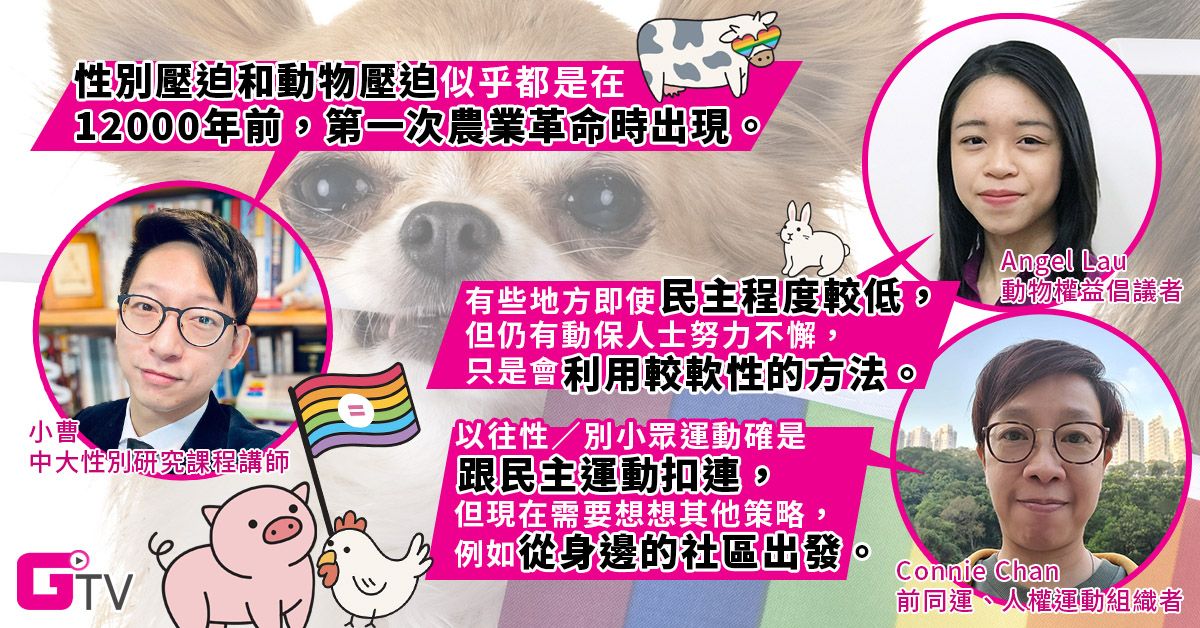
Written by: Emily
Text editors: Winnie, Cindy
Website Editor: EQ
"Everyone is not doing well, why are the sexual minorities demanding so much?" "How can we tell people to care about animals when they can't even care about people?" Facing the narrowing of civil society in Hong Kong, many people feel powerless to sit in the city of distress. Those who want to change the society are the first to bear the brunt: whether they are pursuing social justice, or promoting specific issues such as gender/gender equality, animal protection, etc., there are always difficulties standing in the way. However, if we break away from our respective fields and predicaments, we will find that although the actors have different issues, positions and strategies, they often share the same starting point and belief of "big love", and fight against the different but similar oppression of the power system. G-Spot has invited two experienced activists, one is a physical animal to speak out, and the other is deeply involved in local gender/gender minority movements. The two who seem to be in completely different directions are also eager to change the society. What kind of sparks will they ignite when they sit down and talk?
Follow GDotTV Telegram Channel,
Stay up-to-date with the latest news on G-spot TV!
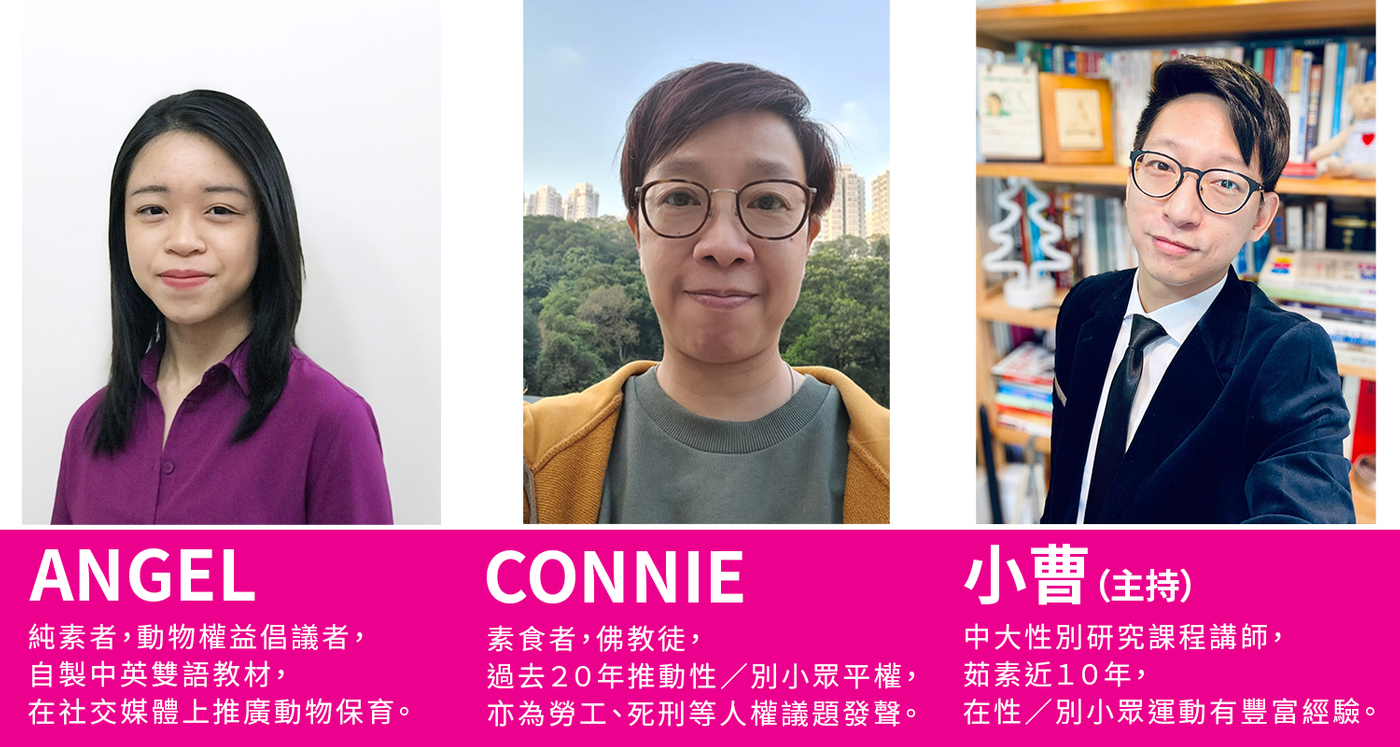
Connie and Angie belong to different generations and different fields of activists, and the opportunities to join the movement are also very different: Connie has been very active in the affirmative action movement in Hong Kong as early as the 1990s, when the society generally rejected discrimination against gender/gender minorities. , including founding the "Hong Kong Women's League" and coordinating the four-year Hong Kong Gay Parade. She has "experienced" in advocacy and organizational actions; Angel studied biodiversity and conservation in the United Kingdom. Five years ago, she I came across a video of a slaughterhouse and was shocked by the cruel truth behind animal products and meat. Since then, I have become a vegan, do not eat meat and use any animal products, and have devoted myself to animal rights advocacy and public education .
Gender and the history of animal oppression are rooted in the rules of power that stratify everything
Gender/gender equality and animal conservation, the two movements have different goals and historical trajectories. Is there an intersection in the middle? Angel said that whether it is the gender/gender minority or the animal protection movement, it is also against the oppression of the "other" by the power system. Citing social psychologist Melanie Joy in her book Powerarchy, she explained that the psychological structures behind human oppression of animals and of other human beings are very similar, both because we assign different levels of life: people are The "highest" creatures, cats and dogs as pets, are a little more noble than the pigs, cattle, sheep, fish, shrimps, crabs, hamsters and wild boars that we often eat. Humans not only judge animals in this way, but also set values for races and ethnic groups different from themselves, believing that they have the right to decide their fate. Exclusion and oppression of certain ethnic groups such as women, gender/gender minorities, and minorities can be justified if they are seen as inferior.
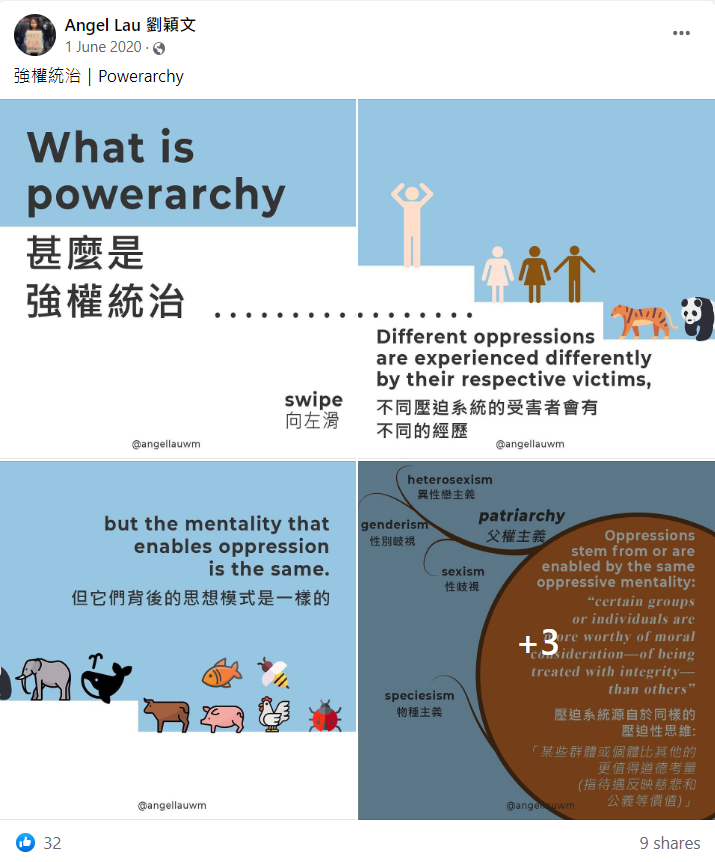
Interestingly, Connie also got the same epiphany from her life as Angel. Although she has been working with "people" for many years, whether it is fighting for equal rights for gender/gender minorities, or working in a full-time NGO to advocate human rights issues such as labor, immigration, and the abolition of the death penalty, her focus is on human suffering and oppression. But since she converted to Buddhism six or seven years ago and began to further reflect on the relationship between humans, animals and nature, she found that human oppression of animals stemmed from "anthropocentrism" to a certain extent, as if People of different genders, sexual orientations and gender identities in society are placed at different levels of power, resulting in exclusion and oppression. In order to bring compassion into daily life and avoid killing, Connie has also chosen to live a vegetarian life in recent years: "Vegetarianism is not only a choice of diet, but also a choice of life, the philosophy and value of life, and a part of life."
The host Xiao Cao pointed out that, looking back on history, we will be surprised to find that gender oppression and animal oppression appeared almost at the same time. The first agricultural revolution occurred 12,500 years ago, and animals began to be kept in captivity, which changed the relationship between humans and nature. In the past, human beings tended to think that they were part of nature and revered nature; after the agricultural revolution, they felt that human beings could be separated from the environment and even dominate nature. At the same time, the status of men and women has also changed. Men gain more wealth through farming and animal husbandry, while women have to bear children and take care of children. They fail to participate in too many labor and production activities.
Vegetarians also need to "come out"? Angel: Don't criticize individual choices and focus on changing the system
With the establishment of a patriarchal farming society, not only has the relationship between humans and animals become unequal, but the power difference between the sexes and the concept of gender/gender have also been continuously rigidified. Just as society instills in us that human beings have a superior and subordinate relationship to all things in nature, just as we were taught how boys and girls should be, homosexuality and transgender "abnormal", etc., these concepts are regarded as truth and shape the entire social system. Therefore, whether it is an animal protection person or a gender/gender minority, they all face the problem of come out (coming out of the closet) more or less, and they need to learn how to express their values and lifestyles to others, which is different from the so-called "social mainstream". Same.
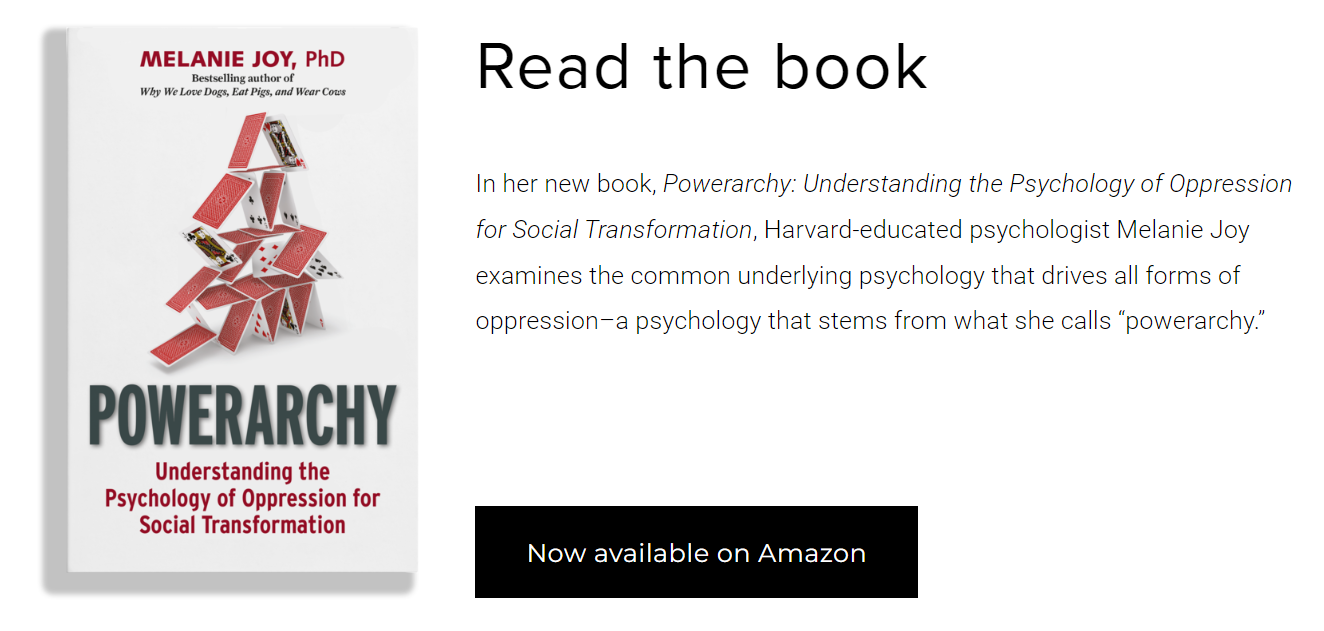
"Where to go to buy groceries and go to vegetarian restaurants, it's easy to find answers online, but how to "come out" with others that you are a vegetarian is more difficult to grasp." Angel talked about his distress after becoming a vegetarian. After becoming a vegetarian, the most difficult thing is not the appetite, but the relationship with family and friends. Whether or not to eat meat, although a very personal choice, is a moral decision that Angel thinks is very important. "I think my parents are good people and role models for me, but why do they think there is nothing wrong with them eating meat for so many years? Why do all my friends around me continue to do things that I think are bad?" Angel admitted that he was confused when.
But in the book "Reign by Power", she found the answer again. It is mentioned in the book that people's values are easily affected by factors such as education, society, and environment. Even if they eat meat, it may only be caused by the "mainstream", which does not mean that they believe in the supremacy of carnivore. Therefore, she learned not to criticize personal choices, but to change the social system such as education and law, and not to be an angry vegan who only points to other people's lives.
Minority or public? Suffering Oppression Induces Empathy Actors Come to the Same Path
Connie has another experience with the word angry vegan. She recalled that when she worked in a human rights organization many years ago, she often laughed at herself as a group of gentle angry people with her colleagues: "To maintain anger against the world is to maintain dissatisfaction with injustice, and we are willing to challenge an injustice society." "When I told my friends that I was a vegetarian, they said: 'Connie, you are already gay, and you still want to be a vegetarian. You are really a small group of people!'" Connie said According to the informal statistics made by the British vegetarian discussion forum, more than 60% of vegetarian members are also of gender/gender minority: "Maybe I am a potential public!"
Why are so many sex/gender minorities also vegetarians? Xiao Cao guessed that it might be because the gender/gender minority is easily oppressed by the power hierarchy, and has a greater sense of the oppression endured by other creatures. He cited the theory of psychologist Ervin Staub's "Altruism born of suffering", pointing out that the minority understands the operation of social mechanisms better and why they are weak under the system, so they treat people and animals better. Or natural oppression is also more empathetic. Whether starting from animal protection or gender/gender minority movements, they will eventually reach the same goal, touching and changing the broader issue of social justice. Connie added that the vegetarian life has broadened her horizons, and as a member of the gender/gender minority, she has long been accustomed to accepting her own and different people's life choices.
Inevitably split within the movement? Connie: Seeing each other from the scolding battle
Both animal protection and gender/gender minority movements want to create a just world, but even within the same camp, philosophies and strategies can vary widely. Angel said that the animal protection movement is mainly divided into two factions: Abolitionists advocate a one-step approach to promote a vegan life; Incrementalists believe that it can be done step by step and gradually promoted. Both are online. There is a lot of debate. There are also factional disputes in the gender/gender minority movement. For example, one faction advocates "destroying the family and abolishing marriage", that is, the marriage and family system is essentially a part of the oppressive system and should be uprooted; the other faction sees the tension between marriage and family. , but believed that the system could be changed gradually.
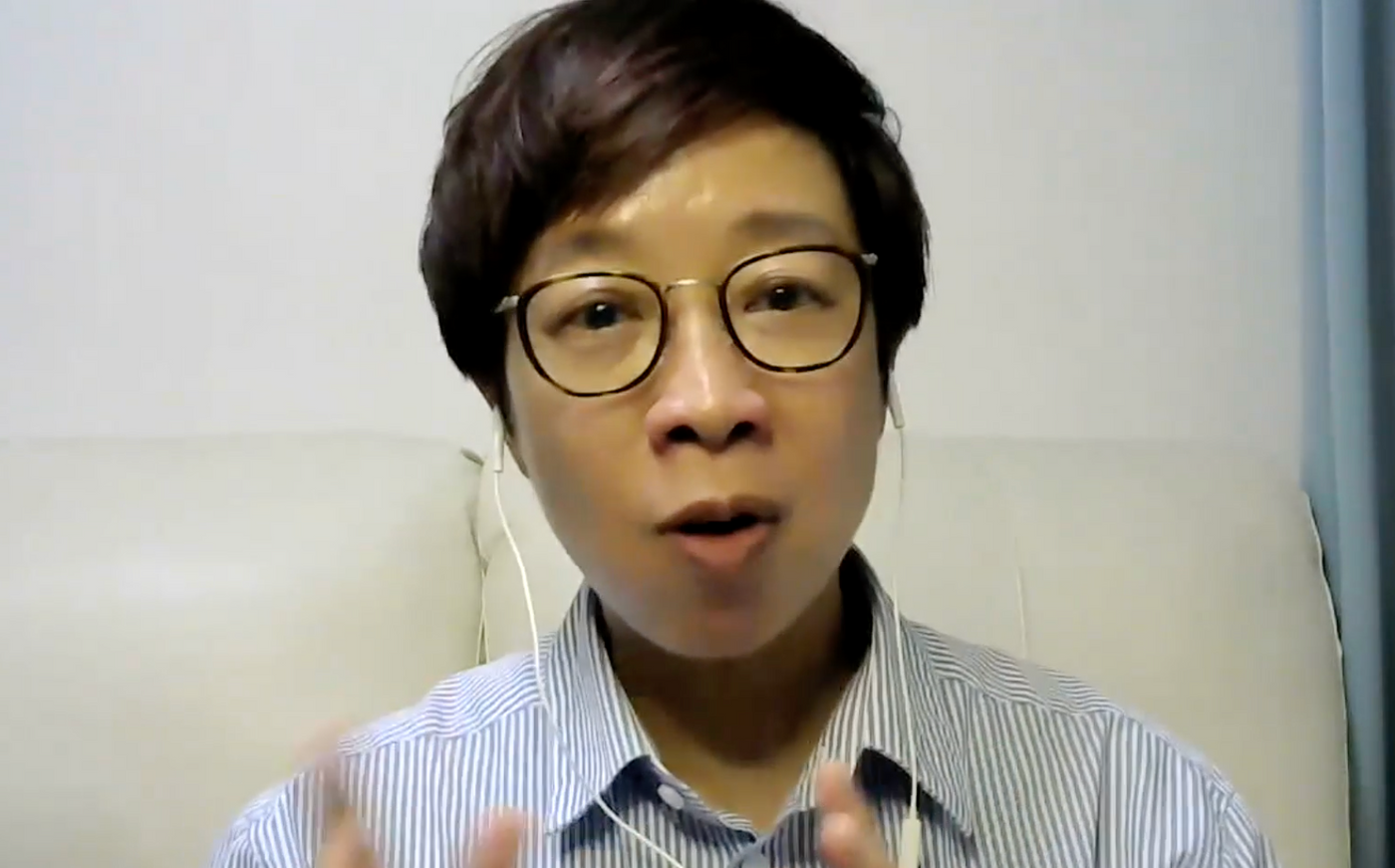
Connie is no stranger to divisions within these movements. As early as the 1990s, the gay liberation movement in Hong Kong had an argument: you have to be gay to join the movement, and bisexuals are not eligible. After the decriminalization of homosexuality, perhaps due to too much oppression in the past, self-protectionism was once prevalent. Not only gays would reject non-gays and transgender people, but there was also a lot of tension between gays and lesbians. Connie recalled some early scolding battles. "A lesbian said to a gay man: 'Who has the same ambition as you?'" From face-to-face quarrels to paper battles in newspapers are also common, but from the scolding battles can be sorted out. Many similarities and differences in concepts can be seen more clearly.
Social issues are interlinked, every small change is great
Fast forward to today, how should the two sports go on? "Without democracy, how can there be equal rights?" It has always been a common argument in the past gender/gender minority movements. It is believed that the overall social progress must be prioritized in order to bring about complete equality of rights for the minority. Is there a similar voice in the dynamic insurance circle? Angel said frankly, "How can I tell everyone to care about animals if they can't even care about people?" This is also the frustration of many people. But she believes that the pursuit of overall social progress has no priority with protecting animals. All over the world, even if the level of democracy and development is low in some places, there are still animal protection activists working tirelessly. It’s just that the strategies used are not necessarily the same for different customs. For example, if the government does not support animal protection, it can promote vegetarian food to enterprises and schools; if the government’s national policy is to promote environmental protection and reduce carbon footprints, then animal protection workers can be ethical. In addition to the role, join the environmental lobbying, and force the large carbon emissions and pollution of animal husbandry.
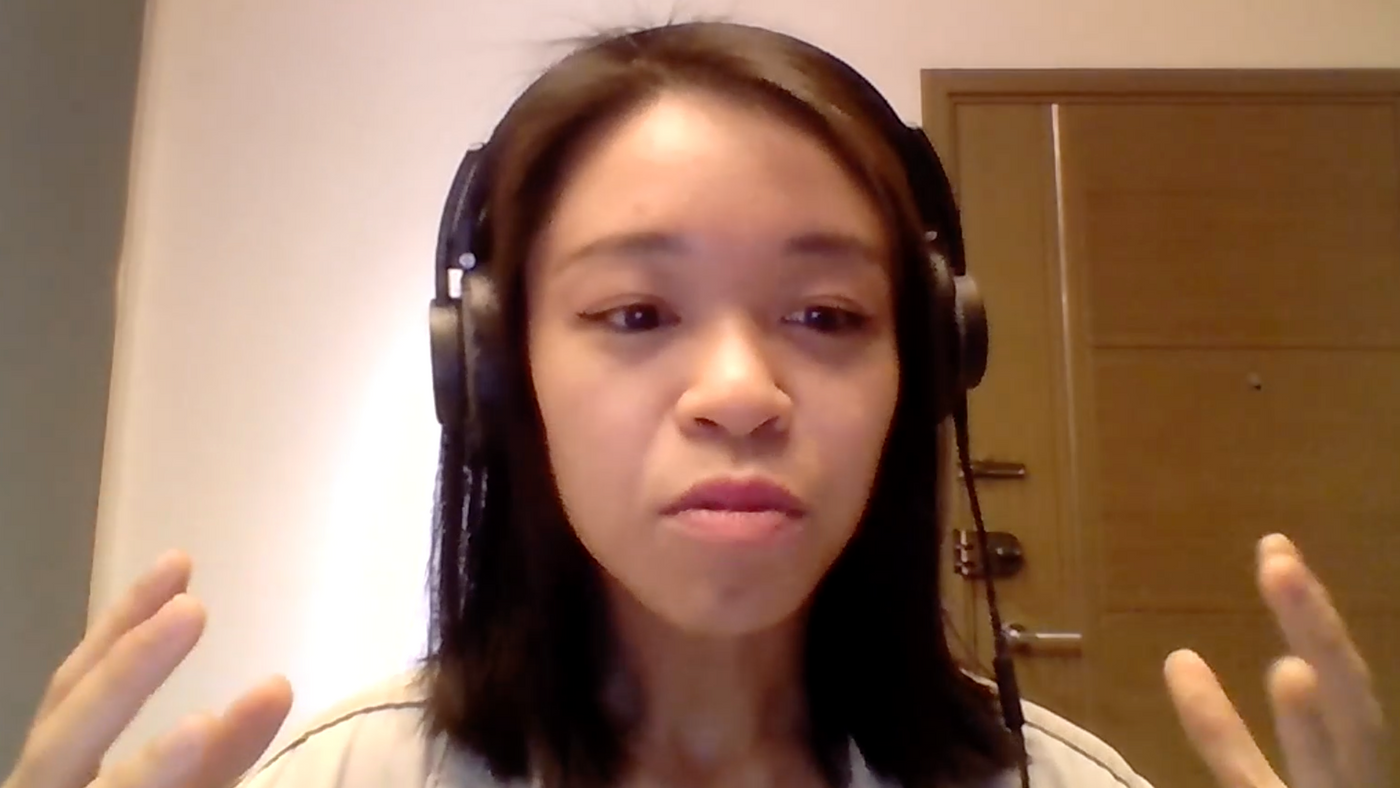
Connie also agreed that there are many ways to advance an issue, and it is necessary to adapt to the situation and be flexible. "We (sex/gender minorities) used to go to the streets, lobby political parties, push for legislation, etc. Now the situation is different, it means there is nothing to do? No, I think every little thing is great." Connie suggested from the community around you Departing from , she saw many civil society friends who are concerned about different issues, have returned to familiar communities in recent years, and communicated with like-minded people. "The fireside is important. When you're alone, you feel like you have nothing to do, but together, you can exchange great ideas that will keep you going tomorrow and the day after."
Apart from being vegetarian and participating in gender/gender minority lectures, how do you connect these two movements in your daily life? Connie cites "coming out" as an example. As a vegetarian and LGBTQ, there are times when you "come out" to others, "they always pretend to be calm, but they're all shocked." Every time I have dinner with a new colleague or friend, Connie will explain that she is a vegetarian, so she will only eat one or two dishes of food, and other people will ask a lot of questions: "Are you not full?" Is it okay to eat dried shrimp?” and so on, she will use this curiosity to explain her philosophy.
Point G requires working capital,
Click here to learn about the N methods that support us
Find common dilemmas and strengths between organizations to avoid "doing bad things with good intentions"
"Even if we can't promote all social movements by ourselves, when we focus on our work, we can consciously avoid aggravating the oppression of other minorities." Angel said that in the past, foreign animal protection organizations used women's rights to promote their ideas. The sultry gesture attracts the public's attention with sexy as a selling point. She believes that those actors who are bent on using all means to achieve their goals, but inadvertently intensify the oppression of patriarchy, can be regarded as "doing bad things with good intentions". Although the ideas between organizations may not be the same, they can also be mutually beneficial. For example, the United Kingdom has organized a combination of environmental protection and animal protection initiatives to organize demonstrations together - linking their common goal, which is to greatly reduce animal husbandry and the accompanying carbon emissions. Although there is not much cooperation between sex/gender minorities and animal protection organizations, the above examples demonstrate the possibility of cross-border cooperation.
Xiao Cao immediately thought of a connection possibility: global warming brings various climate disasters, and women in developing countries are often the first to bear the brunt. Therefore, if animal protection workers can successfully reduce the carbon emissions of animal husbandry, they will also indirectly help specific gender/gender groups. In addition, actors can also make conscious choices when planning activities, such as promoting gender/gender campaigns, to avoid purchasing activities that are harmful to the natural environment and animals. Whether it's a human or an animal, since everyone's beliefs are so similar to the oppressive systems behind them, they can use knowledge and empathy to discover the possibility of working together around them.

Extended reading: "Routines are also discrimination": How do the media today portray gender/no niche?
Original link G-spot TV
Like my work?
Don't forget to support or like, so I know you are with me..
Comment…